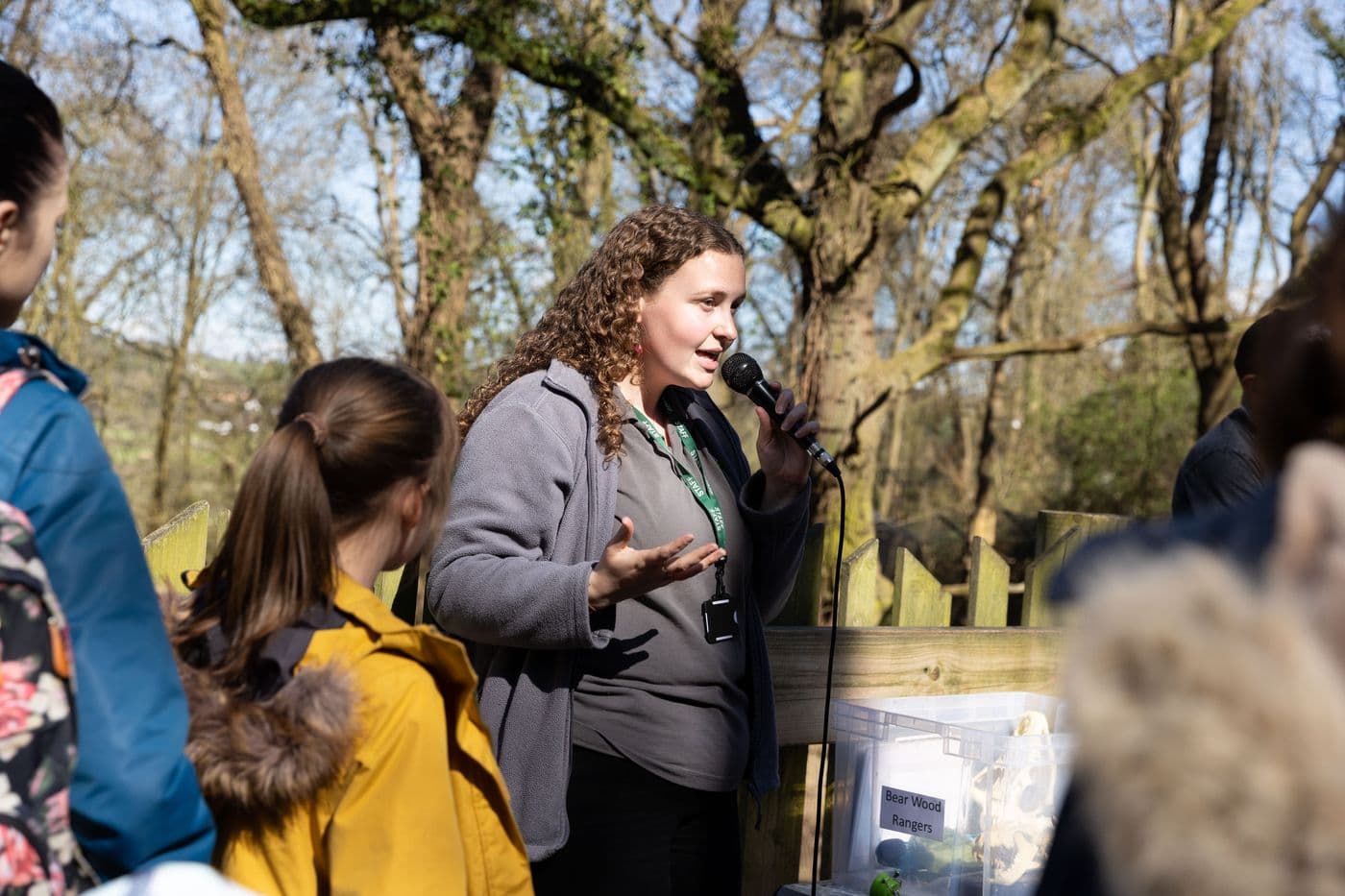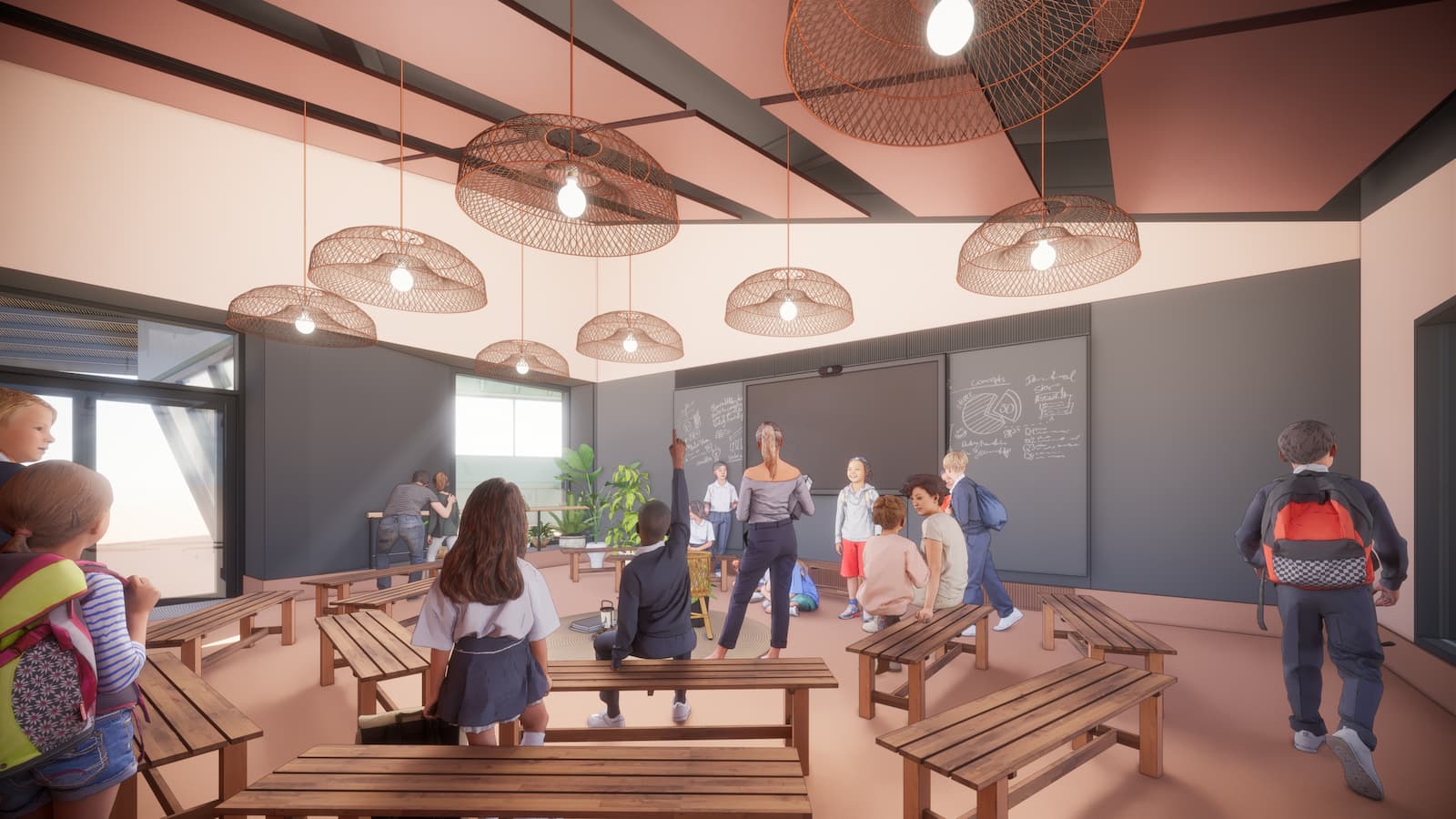
Learning Sessions For Key Stage 3
Discover Curriculum-Linked Learning Sessions
Inspire your students with a curriculum-linked learning session that will challenge their preconceptions, develop teambuilding and communication skills, and engage them with environmental issues.
‘A fantastic school trip – great mix of fun/physical and knowledge of nature.’ – Oldfield School
KS3 Educational Sessions
New! Primate Evolution
Book now for visits from 21 April 2026
 This session is taught in our brand new African Forest Classroom, with a view into the gorilla gym.
This session is taught in our brand new African Forest Classroom, with a view into the gorilla gym.
In our brand-new African Forest Classroom, next to our troop of gorillas, learn how primates, including humans, evolved over time to become adapted to their unique habitats. Students will learn how to taxonomically group primates, and how we can help conserve their forest homes.
Students will:
Identify some species of primates and their adaptations
Learn about the evolution of humans and primates, and how they are taxonomically grouped
Understand that many primates, including humans, rely on woodlands and rainforests and are threatened
Identify how they can help conserve rainforest and woodland habitats
Curriculum and topic links:
Interactions and interdependencies
Relationships in an ecosystem
Genetics and evolution
Inheritance, chromosomes, DNA and genes
Classification
Explore the biodiversity of life on earth and how we try to understand and classify the different taxa on planet earth. Students will learn the difference between invertebrates and vertebrates, and be able to name the five classes of vertebrates, knowing the features of the animals in these classes.
Subjects covered:
Why classifying animals is important, and the different methods employed
The similarities within and between species
Classifying invertebrate groups
The five classes of vertebrates
Curriculum and topic links:
Key Stage 3 Science: Genetics and Evolution
Adaptation and Evolution
Learn about the key themes of adaptation, with a range of biofacts like furs and skulls to illustrate how adaptations help animals to survive in diverse habitats, from the extreme cold of the Arctic to the heat of the desert.
Understand the difference between physical, behavioural and physiological adaptations
Understand the theory of Natural Selection and evolution
Exploring anatomical and behavioural adaptations for a different species
Curriculum and topic links:
Key Stage 3 Science: Genetics and Evolution, Interactions and Interdependencies
Team challenge
Kick off the academic year on the right foot, with a series of team building challenges for your group that will help develop positive relationships, build social and communication skills and grow confidence!
Which team will be the first across the ‘river’, stepping only on ‘rocks’?! And which team can make the best mini-raft? Please note activities are subject to change depending on the age and ability of the group.
Develop teamwork and communication
Physical challenges
Develop resilience
Curriculum and topic links:
Physical Education
This session is also available at a KS2 level.
Wild about Wolves
Exploring our exciting Bear Wood exhibit, students learn the truth about wolves, discover why wolves howl and find their pack by smell alone. Through a series of games, students also learn about wolf adaptation and take part in the predator-prey challenge!
Know some facts about wolves (adaptations and behaviour)
Describe why wolves & other animals became extinct in the UK
Suggest how to preserve remaining forests in the UK
Curriculum and topic links:
Key Stage 3 Science: Genetics and Evolution, Interactions and Interdependencies
Geography
This session is also available at a KS1 level.
Amazing Madagascar
Using Madagascar as a case-study, students explore the unique biodiversity of the world’s fourth-largest island and explore issues relating to deforestation. The session may include an immersive trail through a Madagascan village.
Identify Madagascar location, habitats and some animals
Describe causes of habitat destruction and why some species are endangered
Suggest why it is important to conserve habitat in Madagascar and at home
Curriculum and topic links:
Key Stage 3 Science: Genetics and Evolution
Geography
Got questions?
Check out our FAQs for schools for answers to questions we're asked often. Still unsure? Email [email protected] and our dedicated education booking team will be happy to help you.

How to book
To book, please fill in our booking form to start your educational adventure! See prices here.

